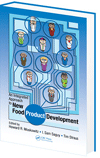FMI Releases 71st Annual The Food Retailing Industry Speaks Report
Survey finds 2019 investments by food retailers paved the way for meeting 2020 consumer demands

The annual The Food Retailing Industry Speaks (Speaks) report, released by FMI—The Food Industry Association, finds that in 2019 the food retail industry saw strong operational performance, which helped the industry face challenges in 2020. At the same time, outside forces including trade, credit/debit card interchange fees and health care costs impacted food retailers and kept profit margins steady.
“In 2019, the food retail industry saw same store sales rise to 3.3%,” shared Leslie G. Sarasin, president and CEO of FMI. “Food retailers experimented with new technologies, online sales, and health and well-being initiatives. It turns out, these investments helped pave the way for 2020 so that food retailers were better prepared for challenges the COVID-19 pandemic presented.”
Although 2019 had several positive trends for the industry, there remain challenges. More than half of retailers surveyed said international trade and tariffs had negative impacts on their business. Credit/debit card interchange fees and health care costs continued to cut into profits, as did higher wages and employee benefits costs. As a result, net income averaged only 1.0% of sales, down slightly from 1.2% in 2018 and at its lowest point since 2010.
“The groundwork laid in 2019 allowed the food retail industry to be nimble this year when grocery stores faced unprecedented demand and the supply chain was dramatically disrupted,” Sarasin said. “In this period, retailers, their associates and their trading partners pursued proactive strategies to feed the nation. The food industry will continue to innovate even when faced with uncertainty.”
The Speaks survey represents more than 37,000 food retail stores and includes 2019 operational and financial benchmarks as well as insights into strategic and tactical decisions. This year’s survey also asks retailers to provide perspective on the first few months of the COVID-19 pandemic. For more information and to download the report, visit FMI.org/GrocerySpeaks.
Looking for a reprint of this article?
From high-res PDFs to custom plaques, order your copy today!








